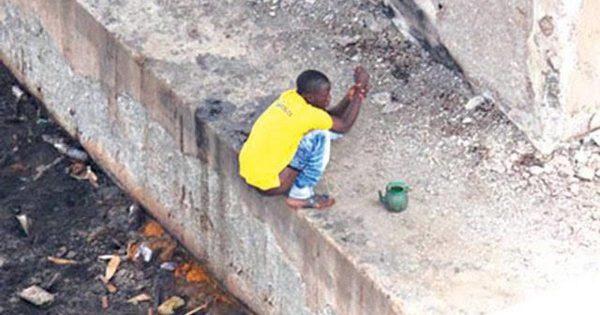
As the world marks the 2021 World Toilet Day on Friday, UNICEF says the states of Abia, Zamfara, and Akwa Ibom rank least while Kwara, Plateau, and Ebonyi rank highest in open defecation in Nigeria.
According to it, there has been limited progress over the last two years in the fight against open defecation in Nigeria.
The News Agency of Nigeria reports that World Toilet Day is marked annually on November 19 to raise awareness on the 3.6 billion people around the world who are still living without access to a safely managed toilet.
It is to inspire action to tackle the global sanitation crisis and help achieve Sustainable Development Goal 6 (SDG 6), which seeks sanitation for all by 2030.
The theme for World Toilet Day 2021 is “Valuing Toilets”.
According to the new figures by UNICEF, soon to be released on Nigerians’ access to water, sanitation and hygiene services, the rate of open defecation in Nigeria has remained steady at 23 per cent.
“As many as 46 million Nigerians still defecate in the open.
“The states with the highest rates of open defecation include Kwara, Plateau, and Ebonyi.
“Those with the lowest rates are Abia, Zamfara, and Akwa Ibom,” a statement by UNICEF said on Friday.
UNICEF said that there had been some progress on ending open defecation, with 71 out of Nigeria’s 774 local government areas now declared ‘open defecation free – up from 18 in 2019.
“The states with the highest number of ‘open defecation free LGAs are Katsina, Jigawa and Benue – with 21, 18 and 9, respectively.”
According to it, Nigeria is making some progress in improving access to water, sanitation and hygiene services to its population, with 75 per cent of Nigerians having access to basic drinking water services; this is up from 70 per cent in 2019.
It said that access to sanitation (toilet and handwashing facilities) has also increased modestly, from 44 per cent to 46 per cent over the same period.
Peter Hawkins, UNICEF Representative in Nigeria, said: “It is clear that more needs to be done to ensure that all Nigerians have access to safe toilets and that we shift closer to ending open defecation across the country.
“With the Clean Nigeria campaign, we are making strong efforts but the whole country needs to put their full weight behind this campaign.
“We cannot afford to fail; ending open defecation is crucial to making progress in so many other areas, including health.
“There is a clear commitment by the Nigerian government to helping the population to move away from the practice of open defecation – a move that will help support better health outcomes for all, including children.
“The importance of adequate and safe sanitation and proper hand hygiene practices cannot be overstated.
“It helps prevent illnesses that impact families’ livelihoods, and more importantly, take the lives of far too many children. We can and must achieve an open defecation-free Nigeria by 2025,” Hawkins said.
NAN reports that in November 2018, President Muhammadu Buhari had declared a state of emergency in the water, sanitation, and hygiene (WASH) sector and launched a national campaign, tagged ‘Clean Nigeria: Use the Toilet’.
The campaign was to jump-start the country’s journey towards becoming open-defecation-free by 2025.
(NAN)










